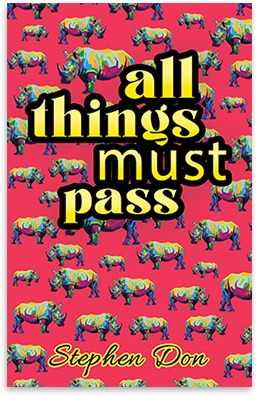
Hubert Selby Jr and Progress
Is it possible, or even necessarily sensible, to talk about Progress in terms of the novel? Jane Austen’s characters still speak with a quiet intensity over our shoulder like an intimate friend whispering gossipy opinion in our ear. But, one can legitimately ask, what happened to the wild and corybantic characters form C18th fiction? They are entirely missing from the elegant drawing rooms of Miss Austen’s world. They re-emerged in the novels of Charles Dickens and moved centre stage in the fiction of C20th writers such as William Faulkner, Carson McCullers, and Hubert Selby Jr. Now, it’s an odd thing the way influence works. I recently picked Last Exit To Brooklyn from my bookshelves, feeling that I had never more than peeked beyond its covers. But I found that I had underscored in pencil many sentences from the first chapter. Thus, I must have at some point given time to reading that chapter. On re-reading it most recently, I could see that its use of free association and stream-of-consciousness has been an influence at some level on the style of my own recently-published novel: all things must pass. Selby Jr. kicked up quite a stink back in his day. Last Exit was a banned book, coming under the cosh for contravening obscenity laws…until that ban was overturned in a landmark legal decision in 1968. What constitutes obscenity is, to some degree, a question of personal taste. I understudied in the West End more than twenty years ago in a wonderful play by the Irish playwright Conor McPherson. His play, The Weir, is a study of loss and loneliness. Since it was a West End production tickets started at £30, a not inconsiderable sum back in the late 90s. There were a few instances throughout the play of the word ‘fecking’ being employed -this was the height and depth of the obscenities in that particular work. But that was enough to disturb two ladies who got up out of their seats after no more than a few minutes into the play and left the theatre with a Parthian shot: “There are still some of us who disapprove of language like that!”. This sounds like a remark from the 1950s -not the 1990s! Be that as it may, it is a revealing remark and tells us a couple of things: why Jane Austen will continue to have a wide appeal to generations young and old, and why demotic use of language by writers will always alienate a certain proportion of readers. Austen’s use of language perfectly reflects the social restraints of the polite society of her time; there is not the least hint of the brutal and brutalising world of the Industrial Revolution. We do not look for the effects of the Industrial Revolution in her pages, and we do not find them. What we find is an immensely clever intelligence uncovering the subterfuges and deceits of the heart, and this has been and continues to be a subject of deep interest -indeed, fascination- to all who have ever loved or been loved. But there is an obvious and important caveat to any consideration of pre-Dickensian literature: we are all descended from a world forever changed by the revolutions of the past, whether or not we choose to acknowledge this change. The modern sense of isolation and alienation and rejection and existential despair is a constant as true and observable as Planck’s constant. Even if we sit down to write a simple story for children full of innocence and charm, we writers know with a dreadful inner certainty what happened in Nazi Germany and in the killing fields of Vietnam and Cambodia. We cannot pretend we do not know. We can choose to ignore the terrible events of the C20th and deliberately write to exclude any trace of our knowledge. But, still, those events happened and we cannot wish them away. If, on the other hand, we do write from a standpoint of acceptance of this terrible knowledge, we have a duty as writers not to turn away from the terror without and within. And this, of course, includes the fierce distortion of language which is more than just an adjunct of the distortion of the modern mind and soul. If we conjure demons, and if we speak in tongues and utter obscenities, it may well be a by-product of doing our utmost to repress and push to one side the horrors that lurk in wait for us on all sides.
Post Views : 267